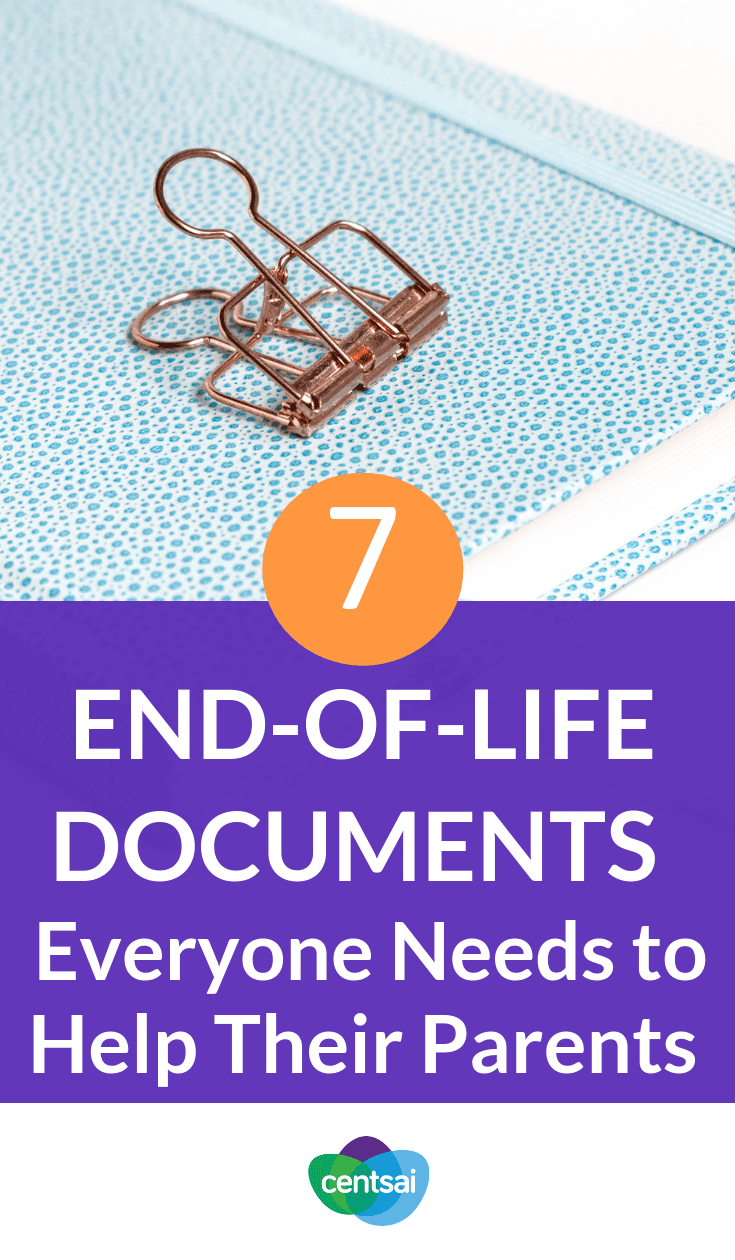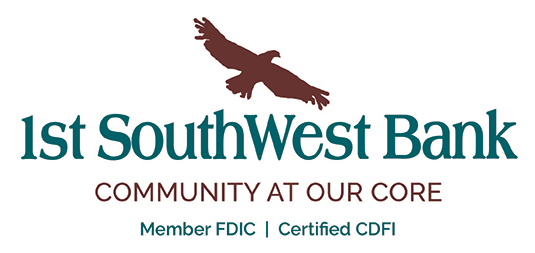Caregivers — whether they’re volunteers, family, friends, or professionals — who support loved ones with their health or managing a disability are an essential part of many families.
Sadly, caring for your parents or any other relative can be much more difficult if they don’t have their finances and their estate in order. Here are some important end-of-life documents and concepts that your parents should consider having in case they ever need care.
You should have them, too. These end-of-life documents can make life much easier for both the person needing care and the caregiver.
1. Medical Directive
 Medical directives are something your parents should consider having. “There is no age at which it is considered too early to put together a medical directive (also known as an advanced directive),” says Ben Huber, owner of Dollar Sprout and clinical administrator at a regional hospital network.
Medical directives are something your parents should consider having. “There is no age at which it is considered too early to put together a medical directive (also known as an advanced directive),” says Ben Huber, owner of Dollar Sprout and clinical administrator at a regional hospital network.
Essentially, medical directives tell your family and health care workers how you want your health care decisions made should you be unable to make them.
“This is especially important because the document dictates the extent to which health care teams should undergo heroic measures to support or sustain life,” Huber says. “Be it advanced breathing equipment, artificial circulation, or procedures such as feeding tube or drain placement, it’s important for decision-makers to know how you feel about certain procedures before situations arise.”
2. Powers of Attorney (POA)
In addition to sharing what medical steps they want taken, your parents will need to set up someone who can make decisions on their behalf if they can’t make their own decisions.
“In the absence of a POA arrangement, your spouse, adult children, or next of kin may be asked for guidance during emergency situations,” Huber says.
There are many types of power of attorney, but the most common ones you may want to establish are related to your finances and your health. That said, things can change, and a power of attorney can be abused to take advantage of your situation.
Here are some general guidelines about what somebody with each type of power of attorney may be able to do, according to Huber:
“POAs for health care can decide on:
- medical procedures, regardless of cost
- health care plans
- indefinite continuity of care within medical reason
- withdrawal of life support
POAs for finances can:
- manage your day-to-day finances
- settle debts/pay lenders
- engage in legally binding contracts on your behalf
- rent property/sign deeds
- choose living arrangements and so forth”
3. List of Financial Accounts and How Your Money Works
Managing your own finances can be stressful. Imagine how much more stressful it would be to manage someone else’s finances when they’re incapacitated, and you can’t ask them questions.
To avoid this problem, your parents should set up some lists to help guide anyone who would need to manage their finances.
In particular, they should make a list of all their monthly bills, bank accounts, and other important financial activities they take care of on a regular basis.
“If your parents do a lot of online banking, ask them to list all the accounts, log-ins, passwords, and security questions and answers,” says Valerie Rind, author of the award-winning book Gold Diggers and Deadbeat Dads.
“You’ll also want to know how they pay their bills. For example, if their home mortgage is automatically deducted from a checking account, you’ll need to make sure that account is consistently funded. You don’t want the mortgage to go into default because no one knew who the mortgage company was or how the payments were made.”
Make sure that occasionally, your parents go over these documents with the person that will take care of their financial issues. This way, nothing is a surprise if the person needs to step in and take temporary control.
4. Reverse Mortgage
Once your parents retire, they may not have much income anymore. One way to generate some additional income is a reverse mortgage. Unfortunately, most reverse mortgages aren’t a great deal. Plus, they can be extremely complicated. In general, a person should try to avoid these unless their home is their only major asset. Even then, carefully consider all other options before taking out a reverse mortgage. One wrong step could result in losing their home.
5. Life Insurance
Life insurance is another important financial consideration. If your parents are retired and they have sufficient assets to cover anyone who depends on them after they pass, they may not need life insurance.
However, if your parents don’t have enough money to cover their final expenses after they pass or to cover the needs of those that depend on them, a term life insurance policy could make life much easier for those responsible for taking care of their final wishes and dependents.
Sadly, life insurance gets more expensive as people get older. As such, it may become unaffordable, if a person can get it at all.
Whole life insurance may be offered, but people should strongly consider if simply saving or investing the premiums would put them in a better place than paying for a whole life insurance policy.
6. Health Insurance
To make life easier for those who will take care of your parents, have a list of the health insurance policies they currently have. You should also provide a document that states what they’re financially responsible for. Figuring out medical bills is always a major headache. Having this information easily available will make things a little easier to figure out.
7. A Will and a Trust
A will and a trust are two more end-of-life documents your parents should consider having in place.
A will essentially allows a person to share how they want their assets distributed after their death. It allows a person to share who they want to have custody of their minor children, too. While wills usually work fine, a judge may have to make decisions about the will if it is contested. Additionally, certain assets may need to go through probate.
A trust, on the other hand, gives more control over how assets are distributed. That said, they’re more complicated and can be costly to set up. Assets need to be titled in the name of the trust, and a successor trustee must be named to manage the trust once a person passes away.
Trusts can avoid the probate process if things are set up correctly. They can also allow a person to set up more complicated distribution requirements. For example, you could distribute financial assets over several years rather than all at once upon death.
The Bottom Line on End-of-Life Documents
Setting up systems and documents to help caregivers manage a person’s day-to-day life will make the caregiver’s job much easier. While the task may seem overwhelming, it’s important to make sure things run smoothly if you or your parents end up temporarily incapacitated.

